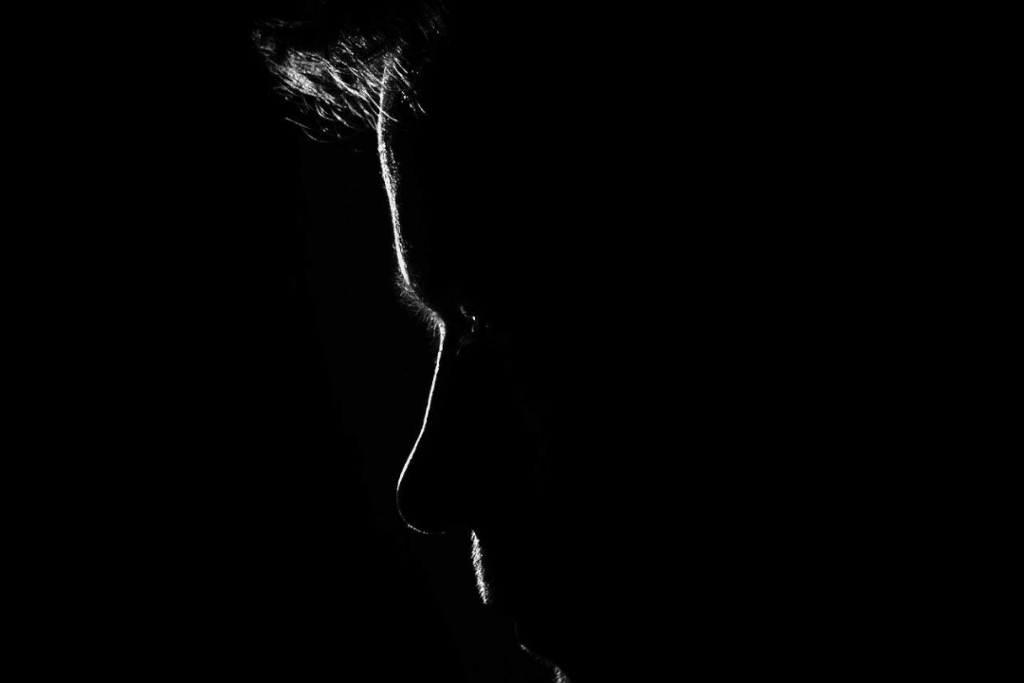In this series about interviewing for biography, I’ve mentioned that the interviewer influences the interviewee and outcome of the interview. In this article, we’ll look at strategies to keep yourself in check so you can make the most of your interview.
You’ve got to check yourself before you wreck yourself. There’s so much at stake during an interview, not just what you say and how you say it but how you manage your own self.
In my previous articles, I’ve outlined how to manage the interview, and in a sense, manage the interviewee. Equally as important is how we manage ourselves and our own emotions — not because complete, clinical objectivity is necessary, but because the ability to manage self enables us to understand how our own emotions influence the process and outcome of the interview. Lillrank refers to this as “introspective self-awareness”.
During interviews, we listen, but, as Lillrank said, active listening is “more than being quiet”. A central part of active listening is focusing on understanding the interviewee — which may sound blatantly obvious, however, our own values, attitudes and emotions can skew our ability to listen without bias.
Hoffman notes that interviewers with greater emotional self-awareness are less influenced by their emotions. There are times during interviews when this will be critical. Hochschild refers to the ability to evoke and suppress feelings as emotional labour (cited by Beck). Hoffman notes that interviewers carry out significant emotional labour during interviews which is exacerbated by the multiple roles they carry out such as being a confidant, a sympathetic ear but also being a student, a person ready to learn.
At times, topics of discussion may be traumatic for the interviewer to hear. Nobel Laureate and oral historian Svetlana Alexievich interviewed over 500 women who were surrounded by death, murder, rape and suicide. Alexievich alluded to the trauma she felt in researching The Unwomanly Face of War, “I had my own war… I went a long way together with my heroines.” She said, “I confess: I did not alway believe that I was strong enough for this path, that I could make it. Could reach the end”. Garrett Graff, editor of The Only Plane in The Sky: An Oral History of 9/11, said that “I cried almost every single day as I compiled the first draft of this book and read or listened as you all recounted living through America’s most dread-filled day”.
Oral historian Donald Ritchie cited Elizabeth Norman, who interviewed American nurses from World War II. Norman said that her interviewees cried and “that was very difficult for me to watch, because of their sense of loss — and they lost a lot in the war. They lost their youth, many, many friends, their physical health, in some cases, their emotional health, and they would cry about it. As a human being, that was hard to watch”.
At times, interviewees may not show reactions that we expect, for example, Hoffman noted that one interviewee didn’t display much emotion about the passing of his wife, so she had to “engage in extensive emotional labour to match his minimal emotional showing”.
In addition, the common use of open-ended questions during biographical interviews leads to unpredictable responses and topics of discussion, which the interviewer may not be emotionally prepared for. The Australian Attorney-General’s Department noted that researchers found that some victims and survivors of child sexual abuse disclose their abuse when they are unexpectedly exposed to the institution where abuse may have taken place — thus even a question about school or home may lead to a discussion of traumatic experiences or a disclosure of abuse. Being prepared to handle a wide range of emotions is a critical skill when interviewing for biography.

Before the interview
In my article, “Interviewing for biography: before the interview”, the importance of preparing emotionally before an interview is briefly discussed. Talmage refers to this as “the self that we bring to the interview” and notes that “it matters a great deal what goes on in the analyst’s mind prior to the beginning of an interpretive process”. Janesick states that the interviewee will notice if their interviewer is stressed out and Jessee notes that interviewees can use emotion to gain power during an interview. Power is closely related to managing self, and I hope to discuss this in a later interview.
Do your research
Make sure you’ve done your research, prior to the interview. Ensure you know the key events in your interviewee’s life, as well as influential people and places, so you have some understanding of what topics might be discussed and the emotions you may need to prepare for.
Develop a secure sense of self
Biographical interviews will run smoother if the interviewer has a secure sense of self. An insecure interviewer faced with an interviewee with a point of view different to their own, might become defensive rather than actively listening, or instead of seeking further detail, Talmage notes they may “miss the significance of what the respondent is saying”.
Conversely, if the interviewer can’t put their ego aside, they may dominate the interview, fail to listen effectively and alienate their interviewee. Talmage notes that when we listen, it’s not about validating our own perspectives, “we are listening to, and for, the respondent. This is to be distinguished from either listening to our own sense of self or validation of our own existing view of the world.” So get comfortable with yourself, your own values and attitudes and decide in advance what extent you will allow these to influence your interview.
Create a support network
Consider creating a support network you can turn to for support. Blee states that it’s important to speak with researchers who have had similar experiences and Lillrank suggests an informal network of colleagues, friends and family, a counsellor or psycho-therapist.
Lillrank suggests formalising coping strategies by incorporating these into your research plan. It could be as simple as including a reminder in your plan to reflect on your research and how it may have affected you, with suggestions for self-care or how or where to seek help.
Some journalists have access to counselling, for example, Matloff notes that CNN offers phone or in-personal counselling and The New York times offers similar services. Biographers, on the other hand, are unlikely to have access to corporate-sponsored counselling, thus it’s important to create your plan prior to conducting interviews. In Australia, individuals have free access to a limited number of psychology or psychiatry sessions when referred by their general practitioner; biographers can also access writing groups, in person and online; or contact helplines such as Lifeline 13 11 14 and Beyond Blue 1300 22 4636.
Consider formal training
Even when we strive for objectivity, Talmage notes that “even the most disengaged researcher is likely to reveal agreement or disagreement, shock, amusement, or confusion” but with training, an interviewer can “minimise such reactions”. This training might come through practice, or through formal training, such as tertiary courses on how to conduct qualitative interviews.
In addition, basic training in mental health can better prepare interviewers to understand and respond to mental health issues that arise during interviews, such as St John’s First Aid for Mental Health.
Matloff notes that journalists at USA’s NPR and Hearst Newspapers can access trauma training sessions. Ndegeocello states that journalism students at Michigan State University and the University of Washington are taught how to recognise traumatic stress in their interviewees and in themselves, and are taught how to report appropriately on trauma victims and how to ask questions in a sensitive manner.

During the interview
Be aware of your stereotypes and assumptions
Self awareness is critical as it affects how we listen. Lillrank calls on interviewers to suspend their own perspectives and Ascough, Curthoys and McGrath call for interviewers to be aware of their own reactions and judgements. Talmage notes that interviewers are not “instruments” who can plan and carry out an interview objectively — that we are influenced by a number of factors, and that we need to be aware of our “political agendas, social values, religious orientation, and racial and gender perspectives” and how these might influence our understanding and interpretations of what is said.
Janesick suggests we check our stereotypes, and how these might influence our interviews. Blee conducted emotionally demanding research when she interviewed members of racist and anti-Semitic groups in the USA. Fear and danger were common themes during interactions and interviews, with interviewees making it clear that their interview location housed a large number of weapons or that armed comrades were stationed nearby. With one particular couple, in organising the interview, interactions had been tense, but when Blee arrived and conducted the interview, she found that the interviewee was “charming, soft-spoken and concerned for my comfort”. In hindsight, Blee realised that because of this unexpected interaction, she had failed to press the interviewees as much as she had with others.
Consider also your assumptions about similarities. Janesick suggests that interviewers keep an open mind, and do not assume that someone with similar characteristics to ourselves holds the same views. For example, as a feminist, it would be inaccurate for me to assume that my feminist interviewee holds the same perspectives as I about motherhood or the glass ceiling.
Don’t dominate the discussion
As the interviewer, our role is to listen: whether or not we agree or disagree with our interviewee is often irrelevant. Miller reminds us that if the objective is to gain a deeper understanding of the interviewee, it’s imperative that the interviewer does not attempt to convert the interviewee to their perspective or hijack the interview with their own ideas or life stories. Ritchie suggests that if an interviewer disagrees with their interviewee’s perspective, simply restate what they said or Miller suggests saying that some people might feel differently. Sharing life stories may be an effective way of building rapport, however it is essential that the interviewer’s stories do not dominate the discussion: you are, after all, there to listen.
Respond appropriately
Hoffman suggests deciding which emotions to share and to what extent. In many cases in biographical interviews, the interviewer plays an active role in determining the success of the discussion. Being completely neutral and indifferent is not ideal; your response should build rapport. Ritchie wrote that “interviewers need to give something of themselves in order to merit an open response”. Hoffman (cited by Lillrank) interviewed people about workplace grievances and she managed her responses by minimising what she said and by trying to “look very engaged in what they were saying”.
When Hoffman interviewed homecare workers who had experienced loss, a homecare worker had arrived at a client’s home and found that the client had passed away. Hoffman offered her interviewee a handkerchief and noted the importance of displaying sympathy whilst also being “vigilant to not break down entirely myself”.
Communication specialist Amy DeLouise and producer Richard Harrington suggest mirroring an interviewee’s emotions when discussing heavy, deep topics. Svetlana Alexievich is known for her sympathetic approach to interviews, stating that she often wept with her interviewees. Golus notes that author and historian Studs Terkel is said to have shown great empathy with those he met with, which led interviewees to share much about their own experiences.
In some cases, showing emotion isn’t ideal and interviewers must carry out significant emotional labour to stay focussed. In interviewing a Rwandan elder in prison for leading genocide, Jessee said the nature of the discussion made it difficult for her to listen, she said, “due to the horrific nature of the events Alexandre was describing, I had failed to listen deeply during the interview, which then hindered my ability to revisit his narrative with a critical eye.”
Blee suggests staying focused on the goal of the interview and using rapport and divergence to de-escalate the situation. Blee noted that at times a break might be required or leaving the situation.
Listening to confronting discussions can influence the direction of the interview. Jessee conducted over a hundred interviews with community members and prisoners affected by and responsible for genocide and atrocities in Rwanda and Bosnia. When interviewing a prisoner responsible for leading genocide, Jessee said she had to “make a conscious and difficult effort not to let my knowledge and suspicions of the crimes he committed…. interfere with my ability to listen to what he was trying to tell me”, in particular, she had to manage her impulse to move the conversation to topics that were easier to listen to.
Lillrank described a similar reaction that occurred when researching families of children with terminal illness. During an interview with a mother, Lillrank felt an “overwhelming sense of anxiety, despair and helplessness” leading her to feel “emotionally threatened”. Lillrank reacted subconsciously, becoming a “defended subject” to prevent further emotional pain to herself and because of this, Lillrank found it difficult to hear the rest of the story, opting to change the subject to something less emotionally demanding, asking how the mother had managed the hospital care .
Biographical interviews demand much from participants. From the interviewer, in addition to being prepared and steering the direction of the interview, one must learn to manage oneself. Prepare thoroughly before the interview and be emotionally aware during the interview. After, take time to reflect and take notes of how well you were able to manage yourself, and strive to improve at the next one – after all, you might have another 999 to go.

0 Comments